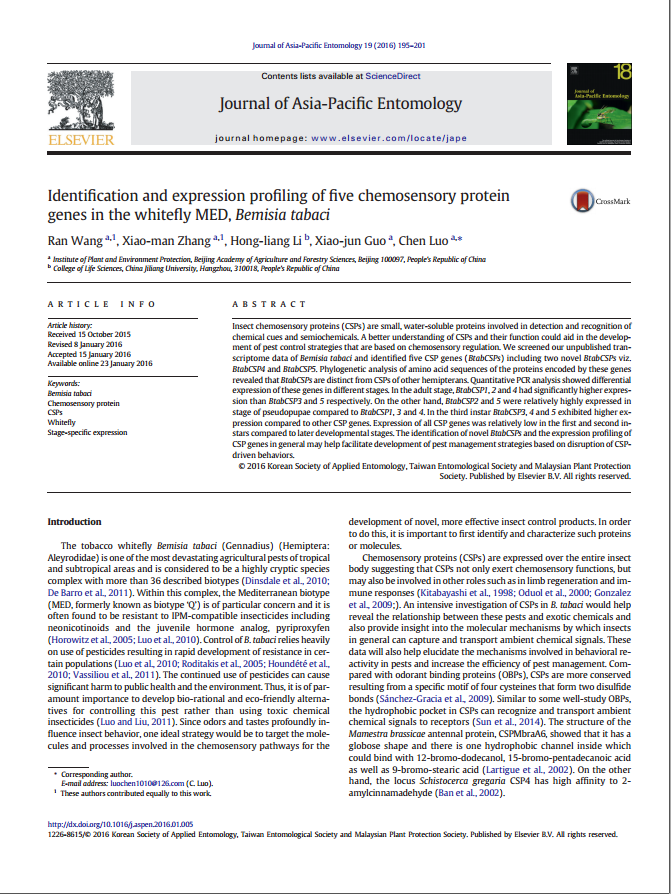欢迎来北京市农林科学院植物保护研究所!

Insect chemosensory proteins (CSPs) are small, water-soluble proteins involved in detection and recognition of chemical cues and semiochemicals. A better understanding of CSPs and their function could aid in the development of pest control strategies that are based on chemosensory regulation. We screened our unpublished transcriptome data ofBemisia tabaciand identified five CSP genes (BtabCSPs) including two novelBtabCSPsviz. BtabCSP4andBtabCSP5. Phylogenetic analysis of amino acid sequences of the proteins encoded by these genes revealed thatBtabCSPsare distinct from CSPs of other hemipterans. Quantitative PCR analysis showed differential expression of these genes in different stages. In the adult stage,BtabCSP1, 2 and 4 had significantly higher expression thanBtabCSP3and 5 respectively. On the other hand,BtabCSP2and 5 were relatively highly expressed in stage of pseudopupae compared toBtabCSP1, 3 and 4. In the third instarBtabCSP3, 4 and 5 exhibited higher expression compared to other CSP genes. Expression of all CSP genes was relatively low in the first and second instars compared to later developmental stages. The identification of novel BtabCSPs and the expression profiling of CSP genes in general may help facilitate development of pest management strategies based on disruption of CSPdriven behaviors.
Copyright © 2015 - 2021 北京市农林科学院植物保护研究所 京ICP备13038350号-7